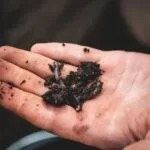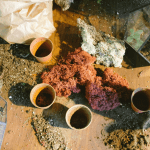Urban Vermicomposting
Philippines
Your trusted source of information
and starter kits for vermicomposting
& vermiculture in the Philippines.
All-day
Support
Our support extends to the after-hours. Get a response within 24 hours of inquiry.
Informative
Content
We offer free educational material backed by years of research & experience.
Unrivaled
Quality
Receive your order in good condition or get your money back, no questions asked.

MAKING A DIFFERENCE
Sustainability for All
Why 1000+ Customers Choose Us




Our Collective Impact
Every year, one worm bin can compost 182 kg of food waste—enough to offset two months of a car’s emissions.
*Based on cumulative sales data.
*Based on customers’ average waste reduction through vermicomposting.
MAKING IT MORE DIGESTIBLE
The Basics of Vermicomposting
Learning how to vermicompost starts with the basics. If you want to learn more, visit the blog below.
Frequently Asked Questions
Vermicomposting, sometimes referred to as vermiculture, utilizes composting worms in order to speed up the breakdown of organic matter. Compared to traditional composting, it is simpler, quicker, and more space-efficient. Vermicomposting produces vermicompost as a byproduct, which is generally considered to be a superior fertilizer compared to regular compost. For a more complete guide on vermicomposting, check out the Getting Started Section in our Blog!
Whether indoor or outdoors, as long as you have a spot that’s protected from the elements (sun and rain), you can start vermicomposting. Check out the various sizes of starter kits in our store page.
Plants are unable to absorb conventionally-used fertilizers well due to its unbalanced nature. Also, these harsh chemicals kill beneficial microbes that maintain plant health. An excess of chemical fertilizers can even burn delicate plant roots. Chemical fertilizers also damage the soil, leaving plants vulnerable to disease.
On the other hand, worm castings boast a complete nutrient profile. Additionally, vermicompost promotes the growth of good bacteria, which help guard plants from disease, and encourage high-quality growth. Likewise, the addition of vermicompost conditions and aerates the soil, promoting healthy plant roots. Most importantly, vermicompost is safe and organic.
According to the study of Castillo and Otoma (2013), the Philippines alone produces around 35,580 tons of garbage daily. Of the trash, 52% is biodegradable. If everyone vermicomposted their biodegradable waste, we would see a reduction of more than half of the trash in the Philippines. As an additional benefit, this would all turn into nature’s best fertilizer. We make it easy for you to do your part with our simple starter kits. Click here to go to our shop page!
Earthworms are our number one partners in creating vermicompost. However, the earthworms used in vermicomposting are unlike the ones found in your garden. Garden earthworms burrow deep into the ground, and will not survive in worm bins. In contrast, African Nightcrawlers, the most commonly used species for vermicomposting in the Philippines, live above ground, in decaying matter. As a result, they can thrive even in small worm bins.
Although most sources cite the red wiggler as the best worm species for vermicomposting, they aren’t suited to the Philippine climate. Instead, in the Philippines, we use African Nightcrawlers which require similar care, eat more food and are more heat-tolerant than their red wiggler counterparts.
About Us
Urban Vermicomposting PH is at the forefront of bringing vermicomposting to the urban setting. We provide information, tips, and tricks for the beginner vermicomposter. We also sell starter kits in order to make the switch to a greener lifestyle easier.







